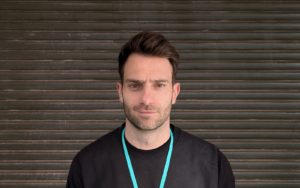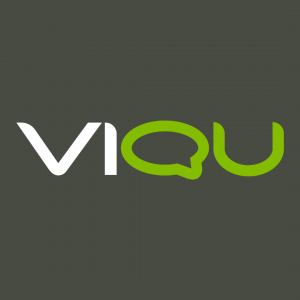What Is Permanent Recruitment?

Are you looking to grow your company and start employing permanent team members? You might be wondering what is permanent recruitment and question what the permanent recruitment process could look like for your company. Well, you’re in the right place – I’m here to explain.
With 10+ years of experience supporting businesses with their permanent recruitment processes, I firmly believe that permanent employees are the heart and soul of a business, and it gives me great joy to find the perfect fit for a client.
Of course, companies across the world take on new employees every day, but it’s understandable if you don’t fully get what permanent recruitment is or what the process looks like when working with an IT recruitment agency.
What is permanent recruitment?
Permanent recruitment is the process of hiring permanent employees – it’s exactly what it says on the tin! Permanent employees are contracted to your company without an end date of employment and they will continue working with you until either they give you their notice or you exit them from the business compliantly. I won’t go into the ins and outs of the termination and exit process – let’s get back to the big positives that I always talk about when someone asks me to define what is permanent recruitment.
Permanent employees are the bedrock of a company, helping to grow the business to new heights. Likewise, through support, companies can train and upskill permanent employees to become long-term assets to them. This reciprocal relationship means that permanent employees are often a popular employment type among businesses.
The permanent recruitment process from start to finish
If you’ve never worked with an IT recruitment agency before, here’s an insight into what a permanent recruitment process will look like if you choose to work with an experienced recruitment agency like VIQU.
First stage: agency meeting
A successful permanent recruitment process starts with strong communication from day 1. We love to meet clients on-site where possible in order to touch and feel the culture of the business and get to know the company from the inside. However, a virtual meeting will also work wonderfully if geography or time restraints stand in the way of us being able to visit your premises.
Generally, we will start by covering the following points:
- What are the business’ growth plans?
- What are your company values and ethos?
- What is your company’s employee value proposition?
- What is the projected timeline for this recruitment process and what are the deadlines for feedback and meetings?
Understanding this will allow us to become your brand ambassador. When speaking with candidates, we will be able to give them a better insight into your company. After all, we want you to be their number one choice of employer!
Second stage: role profile
This is the stage of the permanent recruitment process where we will get more into the nitty gritty. Through discussions, the role profile and career framework will be built and the exact compensation, or the approximations, and benefits will be put in place based on what you can offer and our market insights.
In our conversations, we will look to understand the role inside and out. This includes the must-have and the nice-to-have skills, the technologies the professional needs to be proficient in, the responsibilities they will be expected to cover, as well as what their day-to-day duties will look like. This will enable us to give candidates a fuller understanding of what the role entails.
Third stage: candidate screening
After these discussions, we will start the “attraction, selection, and screening” process of all relevant candidates. We will push your job role out on social media, our website, and specialist job boards. We will also survey our existing network for potential good fits. After contacting individuals who look good on paper, we will narrow our search down and present you with a shortlist of the best candidates.
Fourth stage: candidate discussion
We pride ourselves on being honest with our clients, especially regarding market reactions and general feedback on each role. If we struggle to garner interest in your role or find suitable candidates, we will discuss what might need to be changed to successfully find you the best candidate. We will also present the current list of relevant candidates, ask for your feedback and if you’re happy to go through to the interview stage with this selection.
Fifth stage: interviews and feedback
Next is the interview process with the shortlisted candidates. Throughout this stage, we will be conducting pre-interview calls and regular check-ins with the candidates to find out if they are attending interviews at other companies and how they feel about your role.
For first stage interviews, if you are too busy, we will be able to stage these for you, recording them so you can watch them in your own time and choose whom you want to go forward with. Depending on the role this may be a multiple-stage interview process which we will help to arrange and manage.
This stage is entirely bespoke to your company and fitted to your needs. Of course, the aim is that you find a candidate that is a good fit, to whom you want to offer the role.
Sixth stage: offer and negotiation
Once you’ve made that decision, next comes the offer stage. This is when you finalise the contract on your side which we will present to the successful candidate. After this, there might be a period of negotiation over salary or terms. In these circumstances, we will enable these negotiations, acting as a bridge between parties. After the offer is accepted, we will handle the right-to-work checks, vetting, and reference checking.
Many believe that once an offer is accepted, that the permanent recruitment process finished. However, that is far from the truth. Normally after accepting your job offer the candidate will give in their notice to their current workplace. This is not always straightforward. We have had cases where the candidate’s current company proposes a counteroffer that could necessitate a further renegotiation with you.
Seventh stage: onboarding
Until the new hire turns up on day one, there is no guarantee that they will actually start at your company. As you can imagine, especially in high-level tech jobs where the notice period can be 3+ months, this distance between the offer accepted and the start date is actually a very long period where anything could happen. However, as your recruitment agency, we will help you to manage this period by keeping in touch with the new hire consistently to make sure everything is on track.
Finally, we will help you organise the onboarding process, and help you decide what the candidate’s first day and month will look like. Once they’ve started with you, we will keep in contact with the candidate for a number of weeks and months to gather feedback and ensure they have a soft landing at your company.
What should businesses know about permanent recruitment?
Now that we have gone through what is permanent recruitment and the permanent recruitment process, here are my main tips for what you should keep in mind during this period:
- The candidate experience is essential – not giving feedback or not letting candidates know if they are unsuccessful can affect your company’s reputation.
- Have a set process in place – flexibility is important but you should know how many stages you need the interviews to be and if there should be a skills assessment.
- Move quickly – if you wait too long between each stage of the process, you may lose good candidates to other companies.
- Have all the essentials in place – role profile, company handbook, benefit specifics and when you need someone to start.
- Don’t lose contact – we always recommend businesses invite new hires to away days, company socials, and offer to meet the team virtually or in person before they start.
If you need any help with your permanent recruitment process or finding the perfect permanent candidate for your role, give us a call.
Similar articles you might like...

Tips For Attracting AND Retaining Women In The Workplace
Retaining women in the workplace has significant benefits for organisations, from improved hiring decisions to lower employee turnover.

The Wider Impact Of AI In Talent Acquisition Teams
Talent acquisition specialist Simon Needle shares his thoughts on how processes could change in the industry for the better and worse as AI in talent acquisition becomes more prominent.
Latest jobs
Hardware Engineer
 Stone, United Kingdom
Stone, United Kingdom
 Market Related
Market Related
Hardware Engineer Location: Stone, Staffordshire(On-site – 5 days per week) Salary: Market Related Type: Full-time, PermanentVIQU has partnered with a leading organisation in the nuclear sector to recruit a Hardware Engineer. This is a fantastic opportunity...
Desktop Support Engineer
 London, United Kingdom
London, United Kingdom
 £150 - 200 per day
£150 - 200 per day
Desktop Support Engineer – 3-month Contract – LondonMy client is looking for a Desktop Support Engineer to provide IT support for a 3-month contract. This opportunity will involve service desk issues which will be handled...
Lead Front-End Developer
 Southampton, United Kingdom
Southampton, United Kingdom
 Market related
Market related
Lead Front-End DeveloperSouthampton – HybridCompetitive SalaryVIQU have partnered with a leading financial organisation that is investing heavily in the development of a new, modern software capability. As part of this transformation, they are looking to...
Data Engineering Manager
 Leeds, United Kingdom
Leeds, United Kingdom
 £65k - 75k per year
£65k - 75k per year
Data Engineering Manager Location: Leeds (Mostly Remote – 1 Day On-Site)Salary: Up to £75,000 per annumAre you an experienced Senior Data Engineer ready to step into a leadership role? We’re looking for a Lead Data Engineer to join...
Cyber Security Team Lead
 Cardiff, United Kingdom
Cardiff, United Kingdom
 £240 - 245 per day
£240 - 245 per day
Cyber Security Team Lead – Hybrid – Cardiff – ContractVIQU have partnered with a public-sector client based in Cardiff, who are seeking a Cyber Security Team Lead to support a small cyber security team on...


